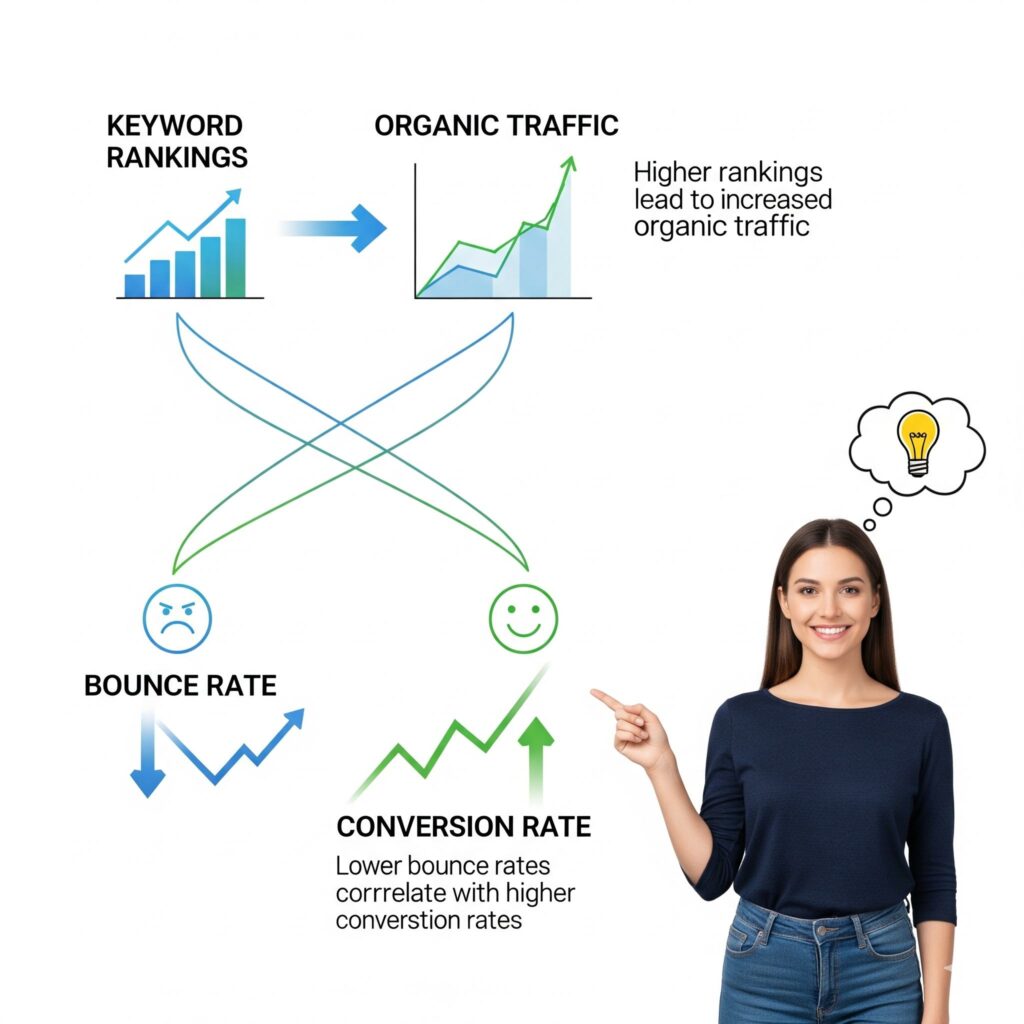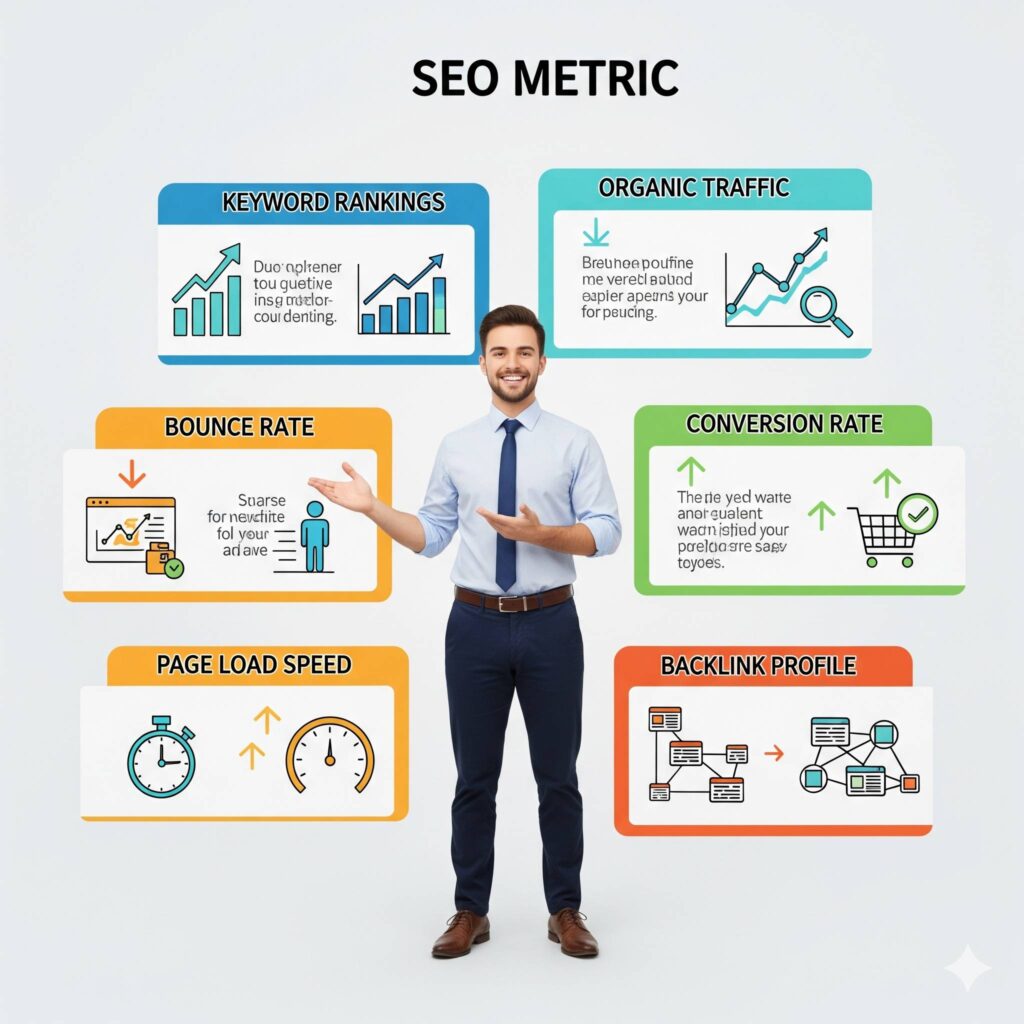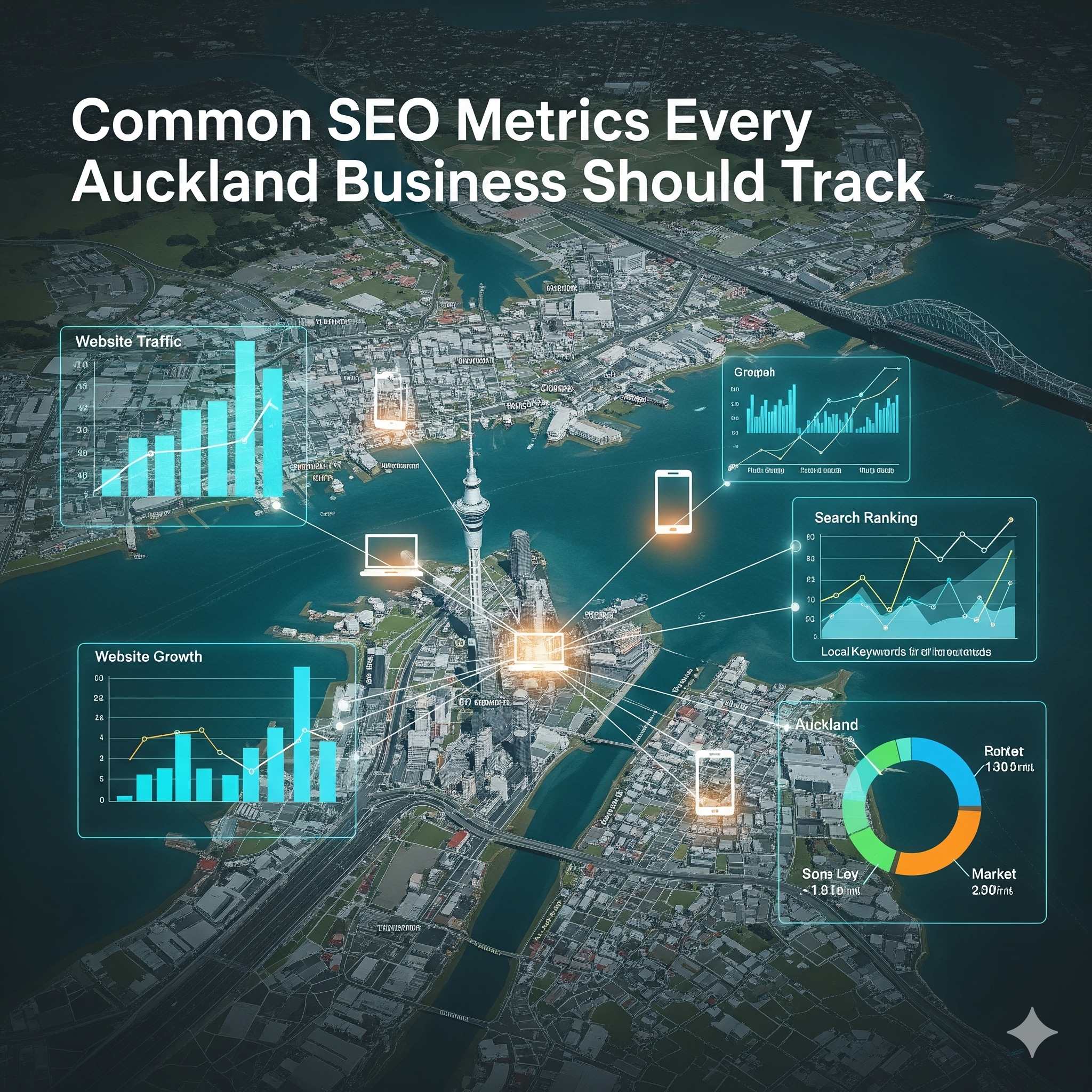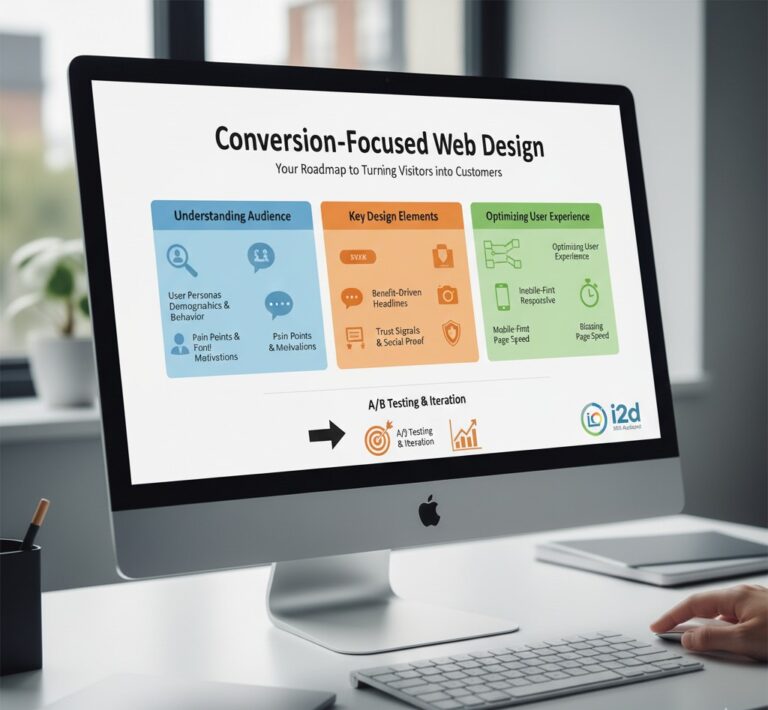Keeping track of the right SEO metrics is essential for businesses aiming to stand out in today’s competitive digital landscape. Whether you’re a small business owner, a marketer, or an entrepreneur, understanding your search engine optimization (SEO) performance can highlight what’s working and what needs improvement.
Many business owners struggle with SEO because they don’t know which metrics to focus on. They pour resources into digital marketing efforts but often lack the proper data to assess their return on investment. Without tracking the right SEO metrics, you’re essentially navigating your strategy without a clear map.
This guide will outline the most important SEO metrics every business should monitor to make informed, data-driven decisions. From keyword rankings and organic traffic to conversion rates and page speed, these metrics can unlock insights into how SEO contributes to your growth. And, while this article includes some insights tailored to Auckland businesses, almost all the recommendations are adaptable to any location or industry.
Why SEO Metrics Matter for Businesses
The online space is more competitive than ever. With consumers increasingly relying on search engines to discover services, products, and local providers, businesses need a solid SEO strategy backed by actionable metrics to succeed. Tracking SEO metrics helps you spot trends, evaluate performance, and measure the impact of your efforts, giving you a significant competitive edge.
The Local Element (Auckland Insights)
If your business operates in a specific market like Auckland, focusing on local search metrics offers a strategic advantage. For instance, small businesses targeting location-based searches like “dentist near me” or “Auckland coffee shops” are more likely to show up in Google’s local search results if they prioritize tracking locally relevant metrics.

Important SEO Metrics Every Business Should Track
1. Keyword Rankings
A successful SEO strategy begins with keyword rankings. Tracking how you rank for relevant search terms indicates how well your website is performing in search engines.
Why It Matters
Ranking high for important search terms makes it easier for customers to find your business. For example:
- Track industry-specific and long-tail keywords.
- Follow local terms if applicable (e.g., “roofing services Ponsonby” for Auckland-area businesses).
Best Practices
- Use tools like Google Search Console or SEMrush to monitor how specific keywords perform.
- Pay attention to changes over time, including seasonal fluctuations or emerging new keywords.
2. Organic Traffic
Organic traffic measures the number of visitors coming to your website from unpaid search engine results.
Why It Matters
You can use this metric to determine the visibility of your website without having to rely on paid advertisements. Look for trends like:
- Growth in total organic visits.
- Geographic segmentation (e.g., how many local vs. non-local visitors your site attracts).
Tips for Tracking
- Use Google Analytics to drill into organic traffic sources.
- Set up location-based filters to differentiate between local visitors and others.
3. Bounce Rate
You can calculate your bounce rate by observing how many visitors abandon your site after viewing just one page. A high bounce rate can signal that your content or user experience doesn’t align with what users expect.
Key Benchmarks by Industry
- Retail Websites: 20–45%
- Service-Based Businesses: 30–55%
- Blog Posts & Content Pages: 40–70%
Optimizing Engagement
- Improve page-speed performance.
- Mobile responsive website design
- Ensure your content matches searcher intent.
- Highlight local business details if you target a specific market (e.g., current opening hours, local testimonials).
4. Conversion Rate
Simply driving traffic to your website isn’t enough. Your conversion rate reveals how effectively SEO efforts are turning visitors into paying customers, leads, or subscribers.
Defining Conversions for Your Business
Depending on your goals, a conversion could mean:
- A form submission or inquiry.
- A purchase made via your website.
- Newsletter signups.
Local Optimization Opportunities
For location-specific businesses, ensure that local elements (e.g., phone numbers, maps, or mentions of your area) are clearly visible. For example:
- “Get in touch with our Albany office today!” adds a localized element to your call to action.
5. Page Load Speed
Page speed is a critical metric for both user experience and SEO rankings. Websites that load slowly not only frustrate visitors but also rank lower in Google search results.
Speed Benchmarks
- Excellent Speed: Under 2 seconds
- Average Speed: 3–5 seconds
How to Improve Page Speed
- Compress images and maintain responsive design for mobile users.
- Use a Content Delivery Network (CDN) to optimize speed for different geographies, whether you’re serving users in Auckland or any other region.
6. Backlink Profile
Your backlink profile refers to the number and quality of external sites linking back to your content. As a result of these links, search engines can determine the authority and trustworthiness of the website.

Why Quality Outweighs Quantity
The value of a single backlink from a high-quality site far outweighs the value of dozens of low-quality links from irrelevant sites.
Local Backlink Opportunities (If Applicable)
- Get listed in business directories or local news websites.
- Partner with complementary businesses for co-branded content.
How to Use SEO Metrics Effectively
The true value of tracking SEO metrics lies in your ability to connect the dots between data points. For instance:
- Keyword Rankings + Organic Traffic: Can show which terms are effectively driving visitors to your site.
- Bounce Rate + Conversion Rate: Can reveal whether your landing page content is converting users or driving them away.
A Balanced Strategy for All Markets
SEO success is a marathon, not a sprint. Businesses must track and refine their efforts consistently, particularly when competing in high-demand markets like Auckland or focusing on niche industries. By focusing on key SEO metrics, you can craft a data-driven strategy that meets your customers’ needs and delivers sustainable growth.
If you’re ready to take your business to the next level, start by implementing a robust SEO tracking framework today.
Why Choose i2d for SEO Services?
At i2d, we take a holistic approach to SEO that focuses on driving meaningful results for your business. Our team of experts stays up-to-date with the latest search engine algorithms and industry trends, ensuring your website remains competitive in an ever-changing digital landscape. From keyword research and on-page optimization to backlink strategies and technical SEO audits, we offer end-to-end services tailored to meet your unique needs.
Our mission is to improve your search visibility, increase organic traffic, and help you dominate your target market. With a data-driven process and a commitment to transparency, we provide regular performance reports and actionable insights, so you always know how your investment is driving growth. At i2d, we don’t just aim for higher rankings; we aim for lasting success.



